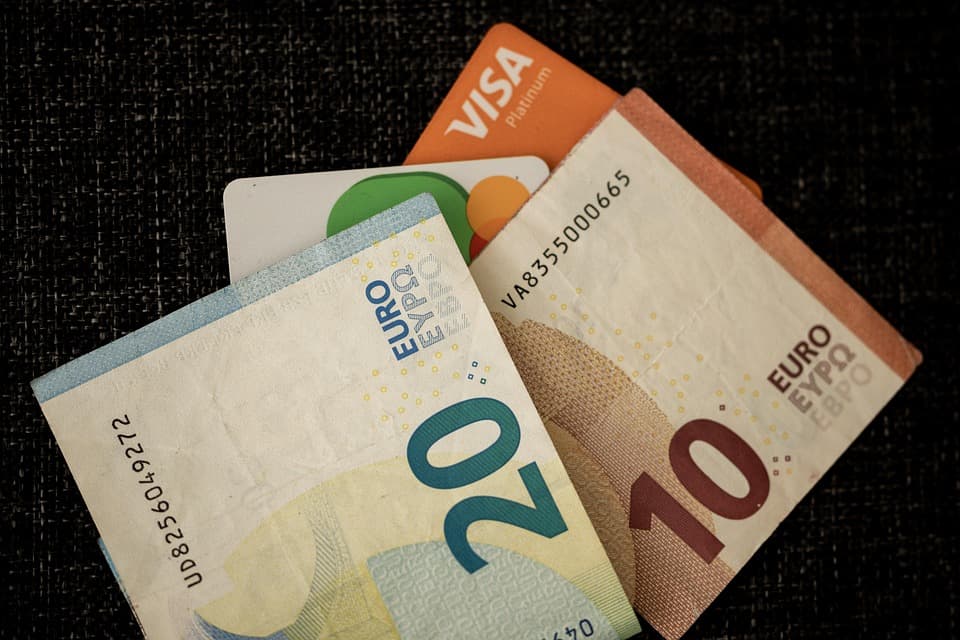Dispute management: reminders, debt collection and recovery of unpaid invoices

Introduction
An unpaid invoice is more than just an inconvenience. It's a hole in your cash flow, time wasted on reminders and sometimes considerable stress. Yet, the majority of unpaid invoices don't result from bad faith: forgetfulness, administrative problems or temporary difficulties are often the cause.
Client reminders must therefore be progressive and methodical. They begin with a courteous reminder, then become firmer if necessary. When the amicable phase fails, debt collection in Switzerland offers a clear legal framework with the payment order. As a last resort, a collection agency can take over.
This guide presents the concrete steps of invoice recovery: letter templates, deadlines to respect, legal procedures and tools to protect your cash flow. The objective is not to break the commercial relationship, but to recover what you're owed whilst maintaining a professional dialogue.
📌 Summary (TL;DR)
The management of unpaid invoices follows a three-stage process: progressive amicable reminders (courteous reminder, firm reminder, formal notice), official debt collection procedure via the payment order, then possible recourse to a collection agency. Each stage has its codes and deadlines.
Prevention remains the best strategy: clear invoices, precise payment deadlines and automated monitoring considerably reduce the risks of unpaid invoices.
📚 Table of contents
The stages of amicable reminders
Before initiating a formal invoice recovery procedure, the amicable reminder remains your best asset. It preserves the commercial relationship whilst recovering your debts.
First reminder (5-10 days after due date): A courteous message that simply reminds of the deadline. Sometimes, the client has forgotten or the invoice got lost in their emails.
Second reminder (15-20 days): The tone becomes firmer. You mention the payment terms and the potential consequences of a prolonged delay.
Formal notice (30 days): The final warning before initiating debt collection. This document must be sent by registered post and explicitly mention the upcoming legal steps.
Document each contact: date, channel used, client's response. This evidence will be useful if you need to move to the next stage. To optimise your chances of payment from the start, consult our guide on the right timing to send an invoice.
Reminder letter templates
An effective client reminder relies on the right balance between firmness and professionalism. Here are concrete formulations for each stage, adapted to the Swiss context.
These templates allow you to structure your reminders without wasting time drafting each message. The important thing: adapt the tone to the situation and the client concerned.
Keep a record of each reminder sent. If you need to move to a recovery procedure, these documents will prove your amicable attempts at resolution.
First reminder: the courteous tone
"Hello [Name], we note that invoice no. [XXX] for an amount of [XXX] CHF, due on [date], has not yet been settled. This may be an oversight on your part. Could you proceed with payment as soon as possible? If you've encountered a problem with this invoice, please don't hesitate to contact us. Kind regards."
This first reminder remains benevolent. You assume the client's good faith and offer them a way out. Always mention the invoice number, the exact amount and the due date.
An email is generally sufficient at this stage. Many delays simply result from forgetfulness or an administrative problem on the client's side.
Second reminder: professional firmness
"Hello [Name], despite our reminder of [date], invoice no. [XXX] for an amount of [XXX] CHF remains unpaid. We ask you to regularise this situation within 10 days. After this deadline, late payment fees of [X]% will be applied in accordance with our general terms and conditions. We remain at your disposal to find a solution. Kind regards."
The tone hardens without becoming aggressive. You mention the concrete consequences: late payment fees, precise deadline. This shows that you're following the case seriously.
Send this reminder by email with read receipt, or by ordinary post if the client doesn't respond to emails.
Formal notice: the final warning
"Dear Sir/Madam, in the absence of payment of invoice no. [XXX] for an amount of [XXX] CHF despite our reminders of [dates], we formally give you notice to proceed with payment within 10 days from receipt of this letter. After this deadline, we will initiate a recovery procedure with the Debt Collection Office without further notice."
This formal notice must be sent by registered post with acknowledgement of receipt. It constitutes the final stage before legal proceedings.
The tone is formal and unambiguous. You explicitly mention the upcoming payment order. Keep the proof of dispatch carefully.
The debt collection procedure in Switzerland
When the amicable reminder fails, Swiss law offers an invoice recovery system via the Debt Collection Office. This procedure is accessible to all creditors, without a lawyer being mandatory.
Stage 1: Debt collection request - You file an application with the Debt Collection Office of the debtor's domicile. Cost: between 40 and 200 CHF depending on the amount.
Stage 2: Payment order - The Office officially notifies the debtor who has 10 days to object or pay.
Stage 3: Removal of opposition or seizure - Without opposition, you can request the seizure of assets or the freezing of bank accounts. In case of opposition, you'll need to go through a court to obtain a removal of opposition.
The debtor can object without justification. In this case, you'll need to prove your debt before a judge, which lengthens and complicates the procedure.
The payment order: instructions for use
The payment order is the official document that initiates debt collection. To file it, go to the Debt Collection Office of the canton where your debtor resides.
Required documents: original invoice, proof of reminders, complete details of the debtor. Some offices accept online submissions.
Costs: Fees vary according to the amount of the debt. Expect 40 CHF for a debt of 500 CHF, up to 200 CHF for 50,000 CHF and above.
The debtor receives the order and has 10 days to react. If they pay, the matter is closed. If they object, you'll need to prove your debt in court. Without reaction, you can request seizure after 20 days.
Using a collection agency
For significant debts or recalcitrant clients, a collection agency can take over. These professionals manage the entire process: reminders, negotiations, legal procedures.
When to outsource: Amounts over 5,000 CHF, clients who systematically ignore your reminders, lack of time to manage the case, or need for legal expertise.
Pricing models: Most agencies work on a success basis (15-30% of the amount recovered), some charge a flat fee, others combine both. Always check who pays the debt collection office fees.
Advantages: Legal expertise, time saving, increased psychological pressure on the debtor. Limitations: High cost, loss of control over the client relationship, no guarantee of recovery if the debtor is insolvent.
Choose an agency that's a member of a recognised professional association in Switzerland to avoid dubious practices.
Preventing unpaid invoices with BePaid
The best invoice recovery strategy remains prevention. BePaid helps you drastically reduce payment delays through automation.
Programmable automatic reminders: Configure reminders that are sent automatically 3, 7 or 15 days after the due date. You never forget a follow-up.
Real-time tracking: The dashboard instantly displays overdue invoices, amounts owed and the payment history of each client. Discover all the features on our dedicated invoices page.
Prevention from invoicing: Request deposits on large projects, avoid invoicing errors that delay payments, and maintain rigorous cash flow management.
With BePaid, you spend less time chasing payments and more time developing your business.
The recovery of unpaid invoices follows a clear progression: from amicable reminders to payment orders, each stage has its importance. A first courteous reminder is often enough to resolve a simple oversight. If the client doesn't react, professional firmness and formal notice prepare the ground for a possible debt collection procedure.
The best strategy, however, remains prevention. Clear invoices sent at the right time, explicit payment terms and rigorous monitoring considerably reduce the risks of unpaid invoices. Automating reminders saves you time and maintains constant pressure without manual effort.
With BePaid, you automate your reminders and track the status of each invoice in real time. Create compliant QR-invoices, schedule your automatic reminders and focus on your business rather than chasing payments. Test free of charge up to 10 invoices and 5 clients, with no commitment.


